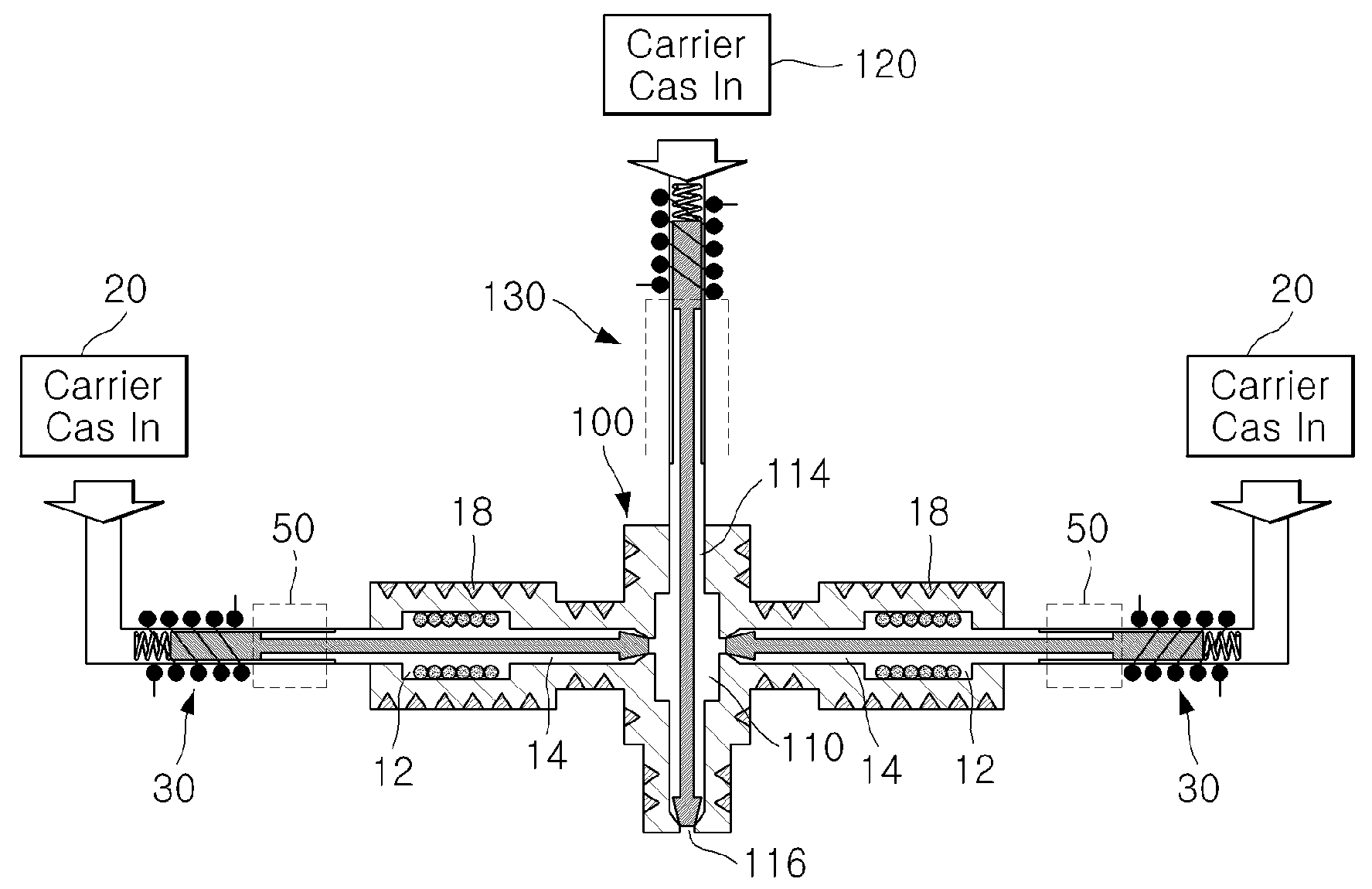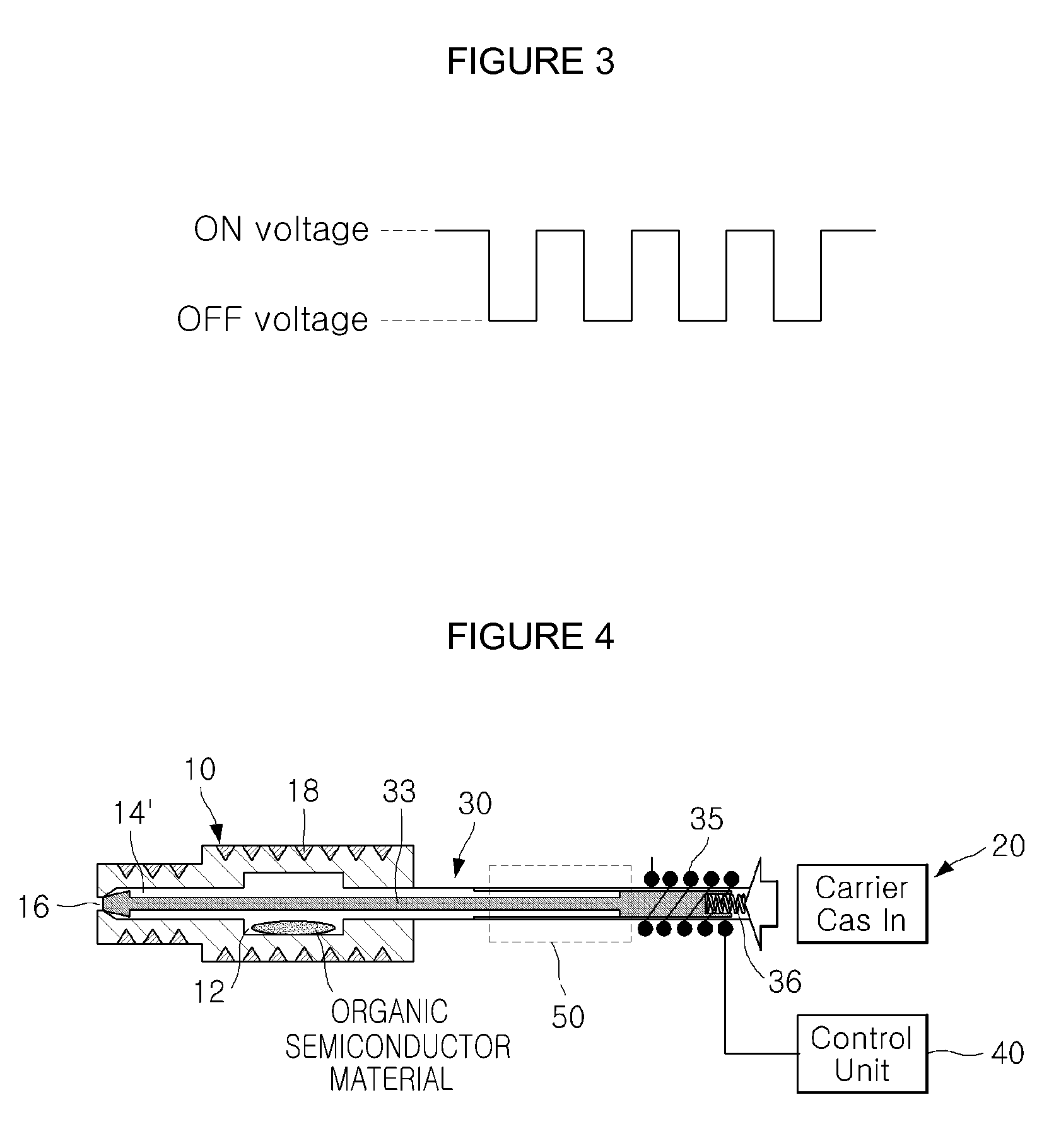Organic dry jet printing head, and printing device and method using the same
- Summary
- Abstract
- Description
- Claims
- Application Information
AI Technical Summary
Benefits of technology
Problems solved by technology
Method used
Image
Examples
Embodiment Construction
[0050]Hereinafter, preferred embodiments of the present invention will be described in detail with reference to the attached drawings.
[0051]FIG. 2 is a sectional view showing an organic dry jet printing head according to an embodiment of the present invention, and FIG. 3 is a view showing an example of control signal settings in an organic dry jet printing head according to an embodiment of the present invention.
[0052]An organic dry jet printing head according to an embodiment of the present invention includes a head body 10 storing a pattern forming material such as an organic semiconductor material (hereinafter, referred to as “organic material”) for forming an organic semiconductor thin film or fine pattern (hereinafter, commonly referred to as “thin film”) on a substrate. The head body 10 is provided therein with an organic material storage chamber 12 for storing the organic material and a carrier gas passage 14 passing through the head body 10 via the organic material storage c...
PUM
| Property | Measurement | Unit |
|---|---|---|
| Temperature | aaaaa | aaaaa |
| Thickness | aaaaa | aaaaa |
| Pressure | aaaaa | aaaaa |
Abstract
Description
Claims
Application Information
 Login to View More
Login to View More - Generate Ideas
- Intellectual Property
- Life Sciences
- Materials
- Tech Scout
- Unparalleled Data Quality
- Higher Quality Content
- 60% Fewer Hallucinations
Browse by: Latest US Patents, China's latest patents, Technical Efficacy Thesaurus, Application Domain, Technology Topic, Popular Technical Reports.
© 2025 PatSnap. All rights reserved.Legal|Privacy policy|Modern Slavery Act Transparency Statement|Sitemap|About US| Contact US: help@patsnap.com



